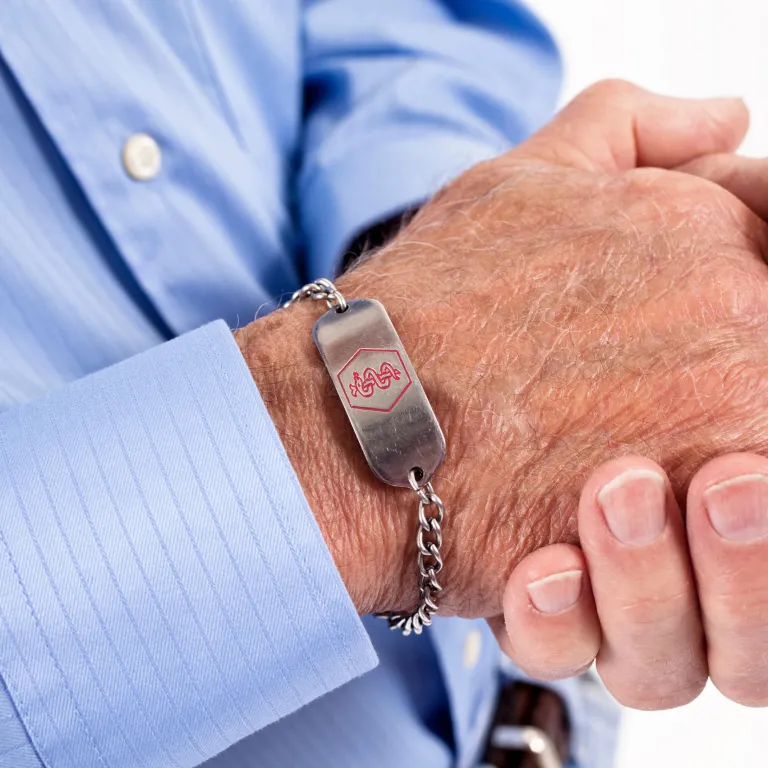
While medical IDs are valuable to people of all ages, they are especially important for seniors and anyone living with a memory impairment condition, however mild or severe. For emergency and medical professionals, knowing a person's medical condition is vital information required for immediate and accurate treatment. In cases when a person is unable to communicate or remember their special needs, wearing a medical ID can help prevent misdiagnosis, unwanted drug interaction, and treatments that can pose risk to a patient’s medical condition.
According to one study, older adults with dementia are more frequent visitors to emergency rooms than those without dementia. And since dementia is an invisible medical condition, meaning you wouldn’t know someone is suffering from it just by looking at them, medical bracelets can be instrumental in letting medical professionals know more about the patient they’re serving. Emergency room trips can often frighten a person with dementia, and an ID tag can ensure they treated in a way that will ease distress.
The idea of wearing a device to alert medical professionals to vital information about you is a relatively "new" medical advance. In 1953 14-year-old Linda Collins suffered a near-fatal allergic reaction when she was administered a tetanus antitoxin after sustaining a cut that required stitches. Her father, Dr. Marion Collins, knew Linda was allergic to tetanus antitoxins, but was out of town at the time when the incident happened. Luckily, Linda survived, and Dr. Collins took it upon himself to prevent similar occurrences from happening to others in the future.
His solution was a bracelet engraved with the Rod of Asclepius, a symbol of medicine and healing, along with important information medical professionals should know about its wearer. Linda’s bracelet, the first of what would come to be called MedicAlert ID bracelets, listed her allergies: tetanus antitoxins, aspirin and sulfa. Dr. Collins went on to found the MedicAlert Foundation, which celebrates its awareness month in August, and today, the CDC, Mayo Clinic and American Diabetes Association all recommend MedicAlert IDs for a wide range of medical conditions: chronic ones like diabetes, COPD and kidney disease; neurological conditions, like Alzheimer’s, Parkinson’s and multiple sclerosis; allergies, to foods, medications or latex; and medications a person is on, such as beta blockers, ACE inhibitors and steroids. By wearing a bracelet, EMTs, paramedics and doctors will all know the best way to treat you, without you needing to tell them.
For more information on the MedicAlert Foundation, a list of who should consider wearing a medical ID bracelet, and to shop medical IDs, click here.